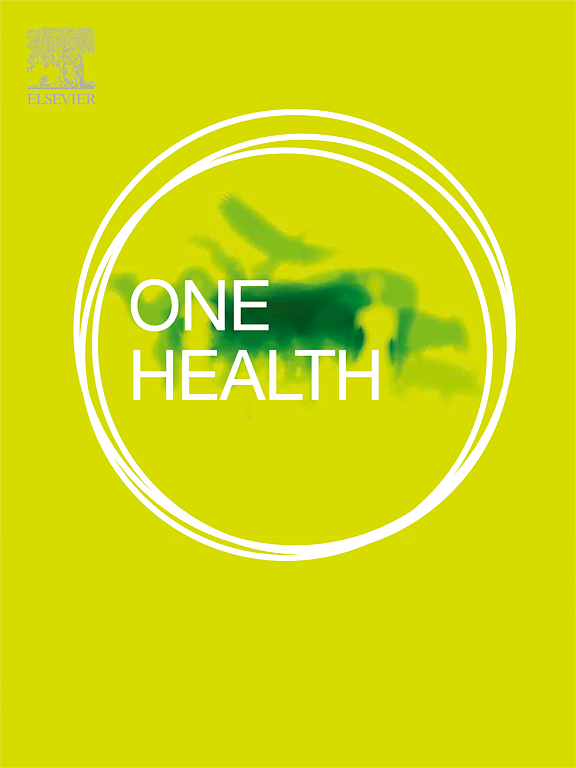Self-reported knowledge, attitudes and concerns about zoonoses among general practitioners in the Netherlands
IF 4.5
2区 医学
Q1 INFECTIOUS DISEASES
引用次数: 0
Abstract
Introduction
Adequate zoonosis literacy among general practitioners (GPs) is essential for signaling and managing zoonotic outbreaks and potential emerging infectious diseases (EIDs). This study aimed to assess Dutch GP's knowledge, attitudes and concerns about zoonoses and their impact on GPs' self-reported confidence in diagnosing and screening for zoonotic risk factors in daily practice.
Method
Data was collected in 2023 using an online questionnaire directed at GPs working in clinical practice in the Netherlands. A multivariable logistic regression analysis was applied to assess whether there were significant associations of socio-demographic factors and other characteristics of GPs with their self-reported confidence.
Results
Of the 332 participating GPs, 12.1 % reported feeling confident in diagnosing and managing zoonoses, and 44.1 % felt insecure about this. The vast majority (80.4 %) indicated that they rarely or never discuss potential risks and prevention strategies for zoonoses in relevant patients. GPs were relatively less likely to feel insecure about zoonoses if they had more years of practice, a better knowledge about infectious disease notification laws, reported notifiable diseases to municipal health services, and diagnosed zoonoses more than once a year. In patients with neurological diseases, fever, infectious respiratory diseases, and skin infections, 44 %, 42 %, 32 % and 9 % of GPs reported never asking about contact with animals or exposure to nature, respectively.
Conclusion
This study revealed that awareness about zoonoses and confidence in diagnosing them are generally low among Dutch GPs. A low response rate and the self-reported data may have led to an overestimation of their confidence. Therefore, additional training and targeted information would be beneficial to enhance awareness.
荷兰全科医生自我报告的关于人畜共患病的知识、态度和关注
在全科医生(全科医生)中充分的人畜共患病知识对于通报和管理人畜共患病暴发和潜在新发传染病(eid)至关重要。本研究旨在评估荷兰全科医生对人畜共患病的知识、态度和担忧,以及它们对全科医生在日常实践中诊断和筛查人畜共患病风险因素的自我报告信心的影响。方法数据于2023年通过在线问卷收集,问卷针对在荷兰临床实践中工作的全科医生。采用多变量logistic回归分析来评估全科医生自我报告的自信是否与社会人口因素和其他特征有显著关联。结果在332名参与调查的全科医生中,12.1%的人表示对人畜共患病的诊断和管理有信心,44.1%的人对此感到不安全。绝大多数(80.4%)表示他们很少或从未讨论相关患者人畜共患病的潜在风险和预防策略。如果全科医生有更多年的实践经验,对传染病通报法有更好的了解,向市政卫生服务机构报告应通报的疾病,并且每年诊断一次以上,那么他们相对不太可能对人畜共患病感到不安全。在患有神经系统疾病、发热、传染性呼吸道疾病和皮肤感染的患者中,分别有44%、42%、32%和9%的全科医生报告从未询问过与动物接触或接触大自然的情况。结论荷兰全科医生对人畜共患病的认识和诊断信心普遍较低。低回复率和自我报告的数据可能导致高估了他们的信心。因此,额外的培训和有针对性的信息将有助于提高认识。
本文章由计算机程序翻译,如有差异,请以英文原文为准。
求助全文
约1分钟内获得全文
求助全文
来源期刊

One Health
Medicine-Infectious Diseases
CiteScore
8.10
自引率
4.00%
发文量
95
审稿时长
18 weeks
期刊介绍:
One Health - a Gold Open Access journal.
The mission of One Health is to provide a platform for rapid communication of high quality scientific knowledge on inter- and intra-species pathogen transmission, bringing together leading experts in virology, bacteriology, parasitology, mycology, vectors and vector-borne diseases, tropical health, veterinary sciences, pathology, immunology, food safety, mathematical modelling, epidemiology, public health research and emergency preparedness. As a Gold Open Access journal, a fee is payable on acceptance of the paper. Please see the Guide for Authors for more information.
Submissions to the following categories are welcome:
Virology,
Bacteriology,
Parasitology,
Mycology,
Vectors and vector-borne diseases,
Co-infections and co-morbidities,
Disease spatial surveillance,
Modelling,
Tropical Health,
Discovery,
Ecosystem Health,
Public Health.
 求助内容:
求助内容: 应助结果提醒方式:
应助结果提醒方式:


